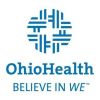The Importance of Early Diagnosis in Heart Disease
- Understanding Heart Disease
- Benefits of Early Diagnosis
- Treatment Options for Heart Disease
- Real-Life Case Studies
- Take Action and Protect Your Heart
Understanding Heart Disease
Heart disease remains one of the leading causes of death worldwide, yet many cases are preventable with early diagnosis. Heart disease refers to a range of conditions affecting the heart, including coronary artery disease, heart attack, and heart failure. Understanding the risk factors—such as high blood pressure, high cholesterol, obesity, and a sedentary lifestyle—is crucial in recognizing early warning signs.
While heart disease can develop silently over years, early detection through routine screenings or monitoring symptoms like chest pain, shortness of breath, or fatigue can significantly reduce the risk of severe outcomes.

Benefits of Early Diagnosis
Early diagnosis of heart disease brings several significant benefits, including the ability to implement prevention strategies and access a wider range of treatment options. By identifying heart disease at an early stage, individuals can take proactive steps to manage the condition before it becomes life-threatening.
Some of the primary benefits include:
- Prevention of Complications: Detecting heart disease early allows doctors to initiate treatments that can prevent heart attacks, strokes, and other complications.
- Improved Quality of Life: Early intervention can lead to better management of symptoms, reducing the impact on daily activities and overall well-being.
- More Treatment Options: Early-stage heart disease often allows for non-invasive treatments such as lifestyle changes, medication, or procedures like angioplasty.
- Better Prognosis: Patients diagnosed early tend to have a better long-term prognosis, as the disease can be managed before it progresses to more severe stages.
Treatment Options for Heart Disease
Once diagnosed, heart disease can be managed in various ways. The specific treatment plan depends on the type and severity of the condition. Some of the common options include:
- Lifestyle Changes: Adopting a heart-healthy diet, regular exercise, and stress management can significantly reduce the risk of heart disease progression.
- Medications: Doctors may prescribe medications to manage blood pressure, cholesterol, and other factors that contribute to heart disease.
- Invasive Procedures: In more advanced stages, procedures like bypass surgery, stent placement, or even heart transplants may be necessary.
Regular check-ups and early intervention provide more opportunities for doctors to recommend these treatments while the disease is still manageable, making the treatment process more effective.
Atlanta Heart Specialists
atlanta heart specialists
4375 Johns Creek Pkwy #350, Suwanee, GA 30024, USA

Real-Life Case Studies
Consider the story of Sarah, a 45-year-old woman who felt fatigued and experienced occasional chest discomfort. Thanks to routine screenings and an early diagnosis of coronary artery disease, she was able to start a treatment regimen that included medications, dietary changes, and regular exercise. Sarah's proactive approach has not only improved her quality of life but also significantly reduced her risk of a heart attack.
On the other hand, John, a 60-year-old man, ignored the early signs of heart disease, dismissing symptoms like shortness of breath and dizziness as signs of aging. By the time he was diagnosed, his condition had progressed to the point where emergency surgery was needed. This case highlights the importance of not overlooking early warning signs and the benefits of timely medical intervention.
Take Action and Protect Your Heart
Early diagnosis is a powerful tool in the fight against heart disease. By taking charge of your heart health today, you can enjoy a longer, healthier life. If you're at risk, schedule a check-up with your healthcare provider and discuss screening options. Regular tests can catch early signs of heart disease, allowing for timely action and better management.
If you're already diagnosed with heart disease, there are many ways to manage the condition effectively. With proper treatment, lifestyle adjustments, and ongoing medical care, it's possible to lead a fulfilling life. Don't wait for symptoms to worsen—act now and prioritize your heart health.
Take the first step towards a healthier heart today. Visit [product/service] to learn more about heart disease prevention and management tools that can help you stay on track.






















Deborah Heart and Lung Center
deborah heart and lung center
200 Trenton Rd, Browns Mills, NJ 08015, USA